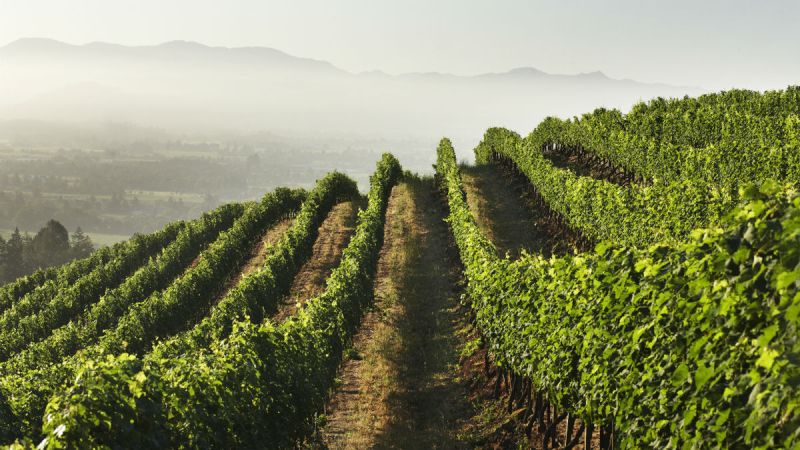
It makes sense when you think about it. If an unfiltered beer or whiskey (or an unfiltered coffee) has more flavors than its filtered counterpart, the same principle should apply to wine. Thankfully, it does.
Take Newton Vineyard’s Unfiltered Chardonnay, for example. Newton, which is located in the Napa Valley, has been producing (and are seen by many as one of the American pioneers of) unfiltered wines for 40 years.

When you filter or fine a wine, you are removing the yeast and other sediment that has collected during fermentation. (Filtering a wine means passing it through a literal filter; fining means adding a substance to the wine that creates bonds with other substances that are not wanted in the final product). These processes produce a crystal-clear wine, which is pretty to look at, but depending on who you speak to, may not be fully expressive of the wine as it was before filtering because you are literally taking certain elements out of it.
For their 2014 vintage, for example, Newton used indigenous yeasts and barrel-fermented their Chardonnay instead of fermenting it in a steel tank. The wine was then aged for 12 months in 30-percent new French Oak barrels. During the aging process, every barrel was hand stirred on a weekly basis to re-suspend the sediment. This helps protect the wine from oxidation and works to create more complexity, as opposed to letting the yeast and other sediment merely fall to the bottom and form a cake. Once aging was completed, the wines were blended and bottled.
What this process produces is an intense, complex, and slightly hazy wine. Not only will you get fig, grapefruit, and pear on the nose, but also vanilla and a little bit of spice. On the palate, you find lemon curd marzipan, and white peach. A natural acidity plays against the creamy mouthfeel in a way you wouldn’t necessarily get in a different Chardonnay that has been filtered.
If you’re looking to step outside of your usual wine-buying habits, it’ll be worth the trip to the store (or the winery, why not? Field trip!) to pick up a bottle or two of unfiltered Chardonnay. Then, after you finish those, Newton also makes unfiltered Cabernet Sauvignon and Pinot Noir.
Newton Unfiltered Chardonnay retails for around $60.



